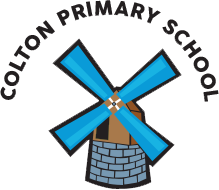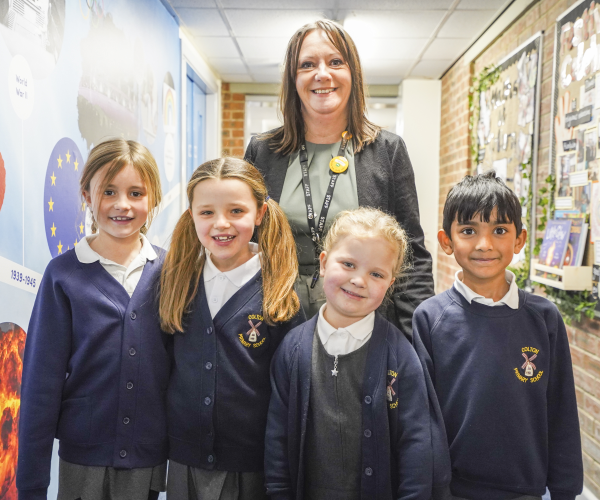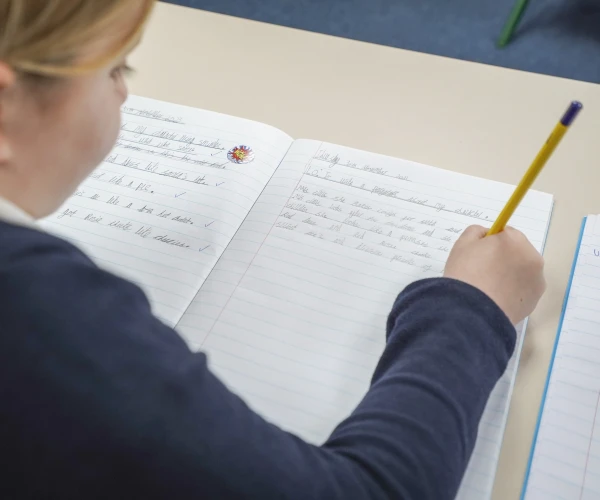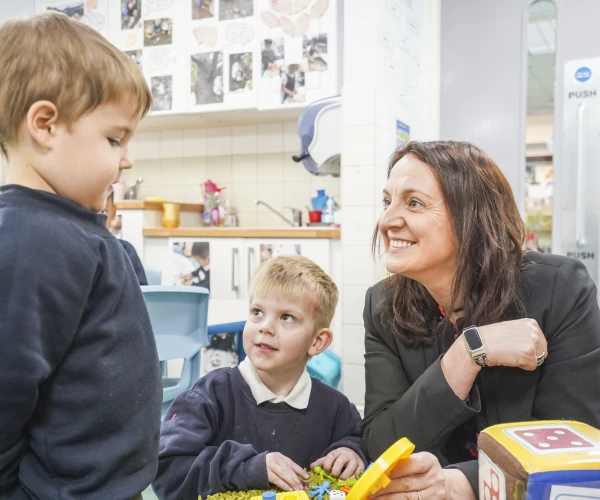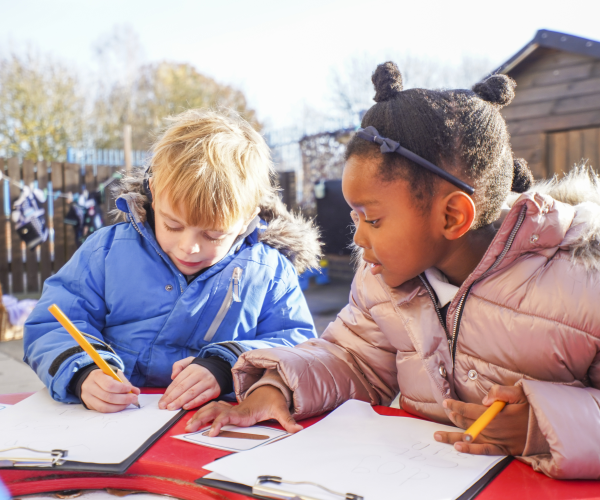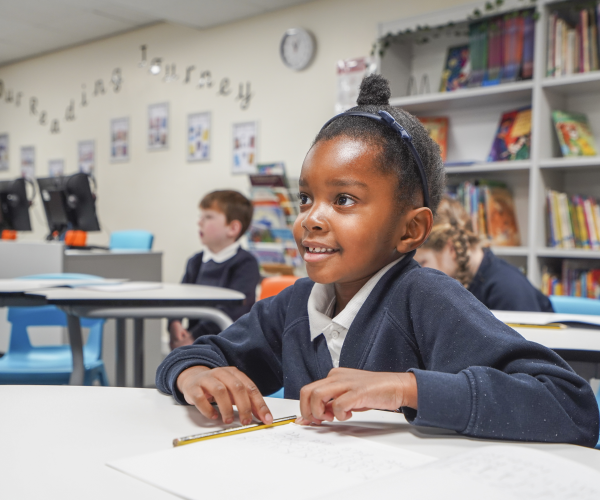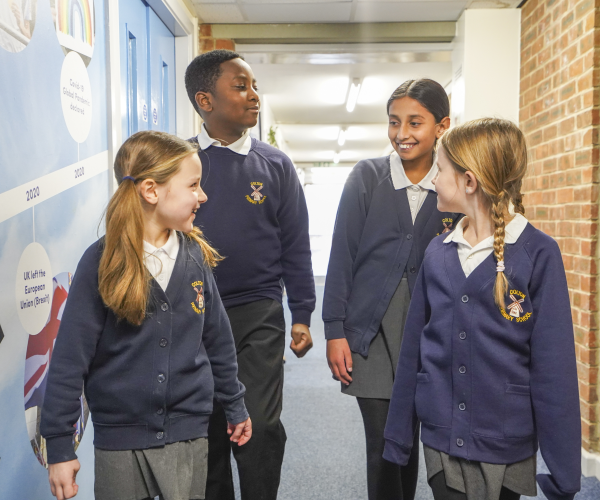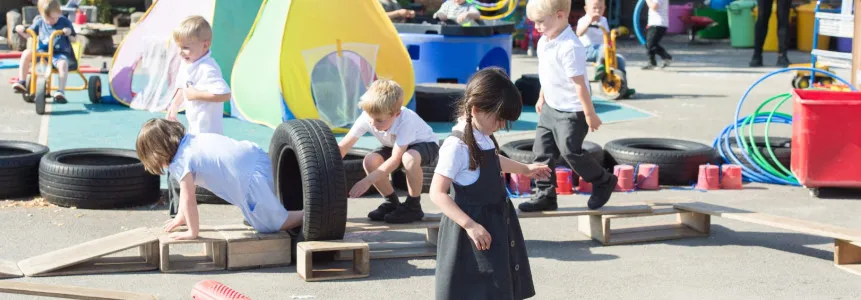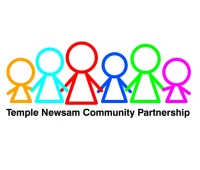Early Years Policy
Colton Primary School aims to be a vibrant learning community where everyone feels safe and happy in a culture of tolerance and respect.
Children and staff are supported and challenged to achieve their full potential with positive regard to gender, religion, age, economic background, disability and ethnicity. The needs of the whole child are at the centre of our inclusive environment. Attainment and progress are valued alongside personal and social development. Pupils at Colton are confident, independent learners who are not afraid to ask questions of themselves and others.
Colton Primary School fosters positive attitudes to learning, where children embrace their mistakes as the next steps along their educational journey. We aim to develop resilient, inquisitive learners; children who love learning, who are intrinsically motivated and who leave our school confident in their abilities and eager to continue their education.
“Everyone Successful Everyday”
Early Years at Colton Primary School
We are very proud of our excellent Early Year’s provision at Colton. Our highly experienced staff are passionate, dedicated and determined to give children a high-quality learning experience across the Foundation stage.
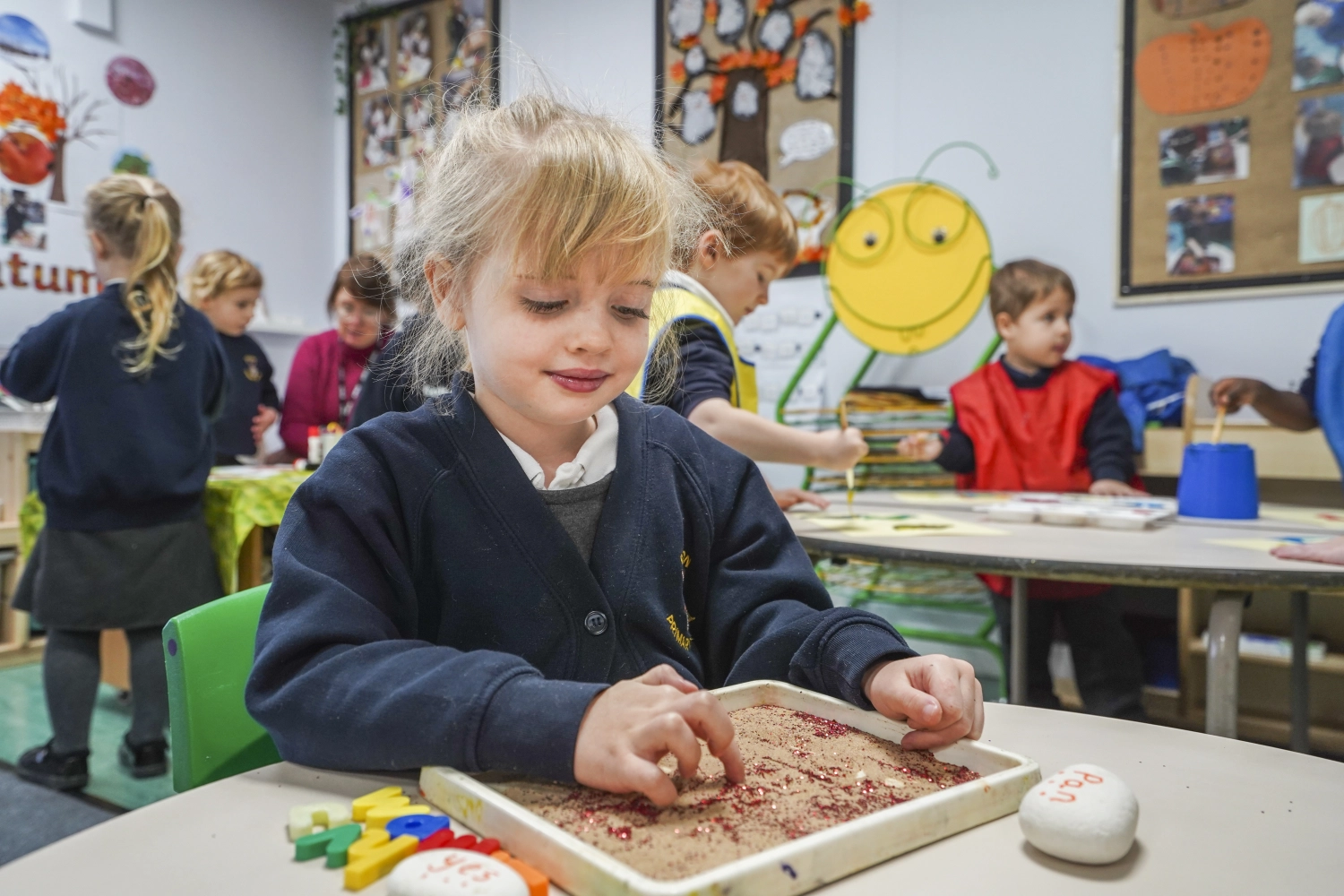
What is our Early Year’s Philosophy?
At Colton, our aim is for children to become confident, resilient, and independent learners.
We aspire to provide rich, engaging experiences that bring joy to children in their learning, so they are curious to learn even more.
Our curriculum and child led approach allows children to thrive regardless of their abilities or their needs.
Our EYFS leader is also the SENCO and Deputy Head and she is determined to ensure every child meets their full potential.
Our Curriculum
In 2020 Colton piloted the new EYFS curriculum as an Early Adopter school. As part of the pilot we have had the opportunity to redesign our curriculum to meet the needs of the pupils at Colton.
The curriculum is exciting, interactive, and purposeful with opportunities for children to follow their own interests and fascinations. Alongside this, children in the Early Years benefit from cohort specific additional curriculum and educational opportunities, designed, and contextualised specifically for the locality of the school.
The Learning Environment
In the EYFS, there are seven areas of learning and development. All areas of learning and development are important and inter-connected. Three areas are particularly crucial for igniting children’s curiosity and enthusiasm for learning, and for building their capacity to learn, form relationships and thrive.
These three areas, the prime areas, are:
- communication and language; • physical development; and
- personal, social and emotional development.
We also support children in four specific areas, through which the three prime areas are strengthened and applied.
The specific areas are:
- literacy
- mathematics
- understanding the world
- expressive arts and design.
None of these areas can be delivered in isolation from the others. They are equally important and depend on each other.
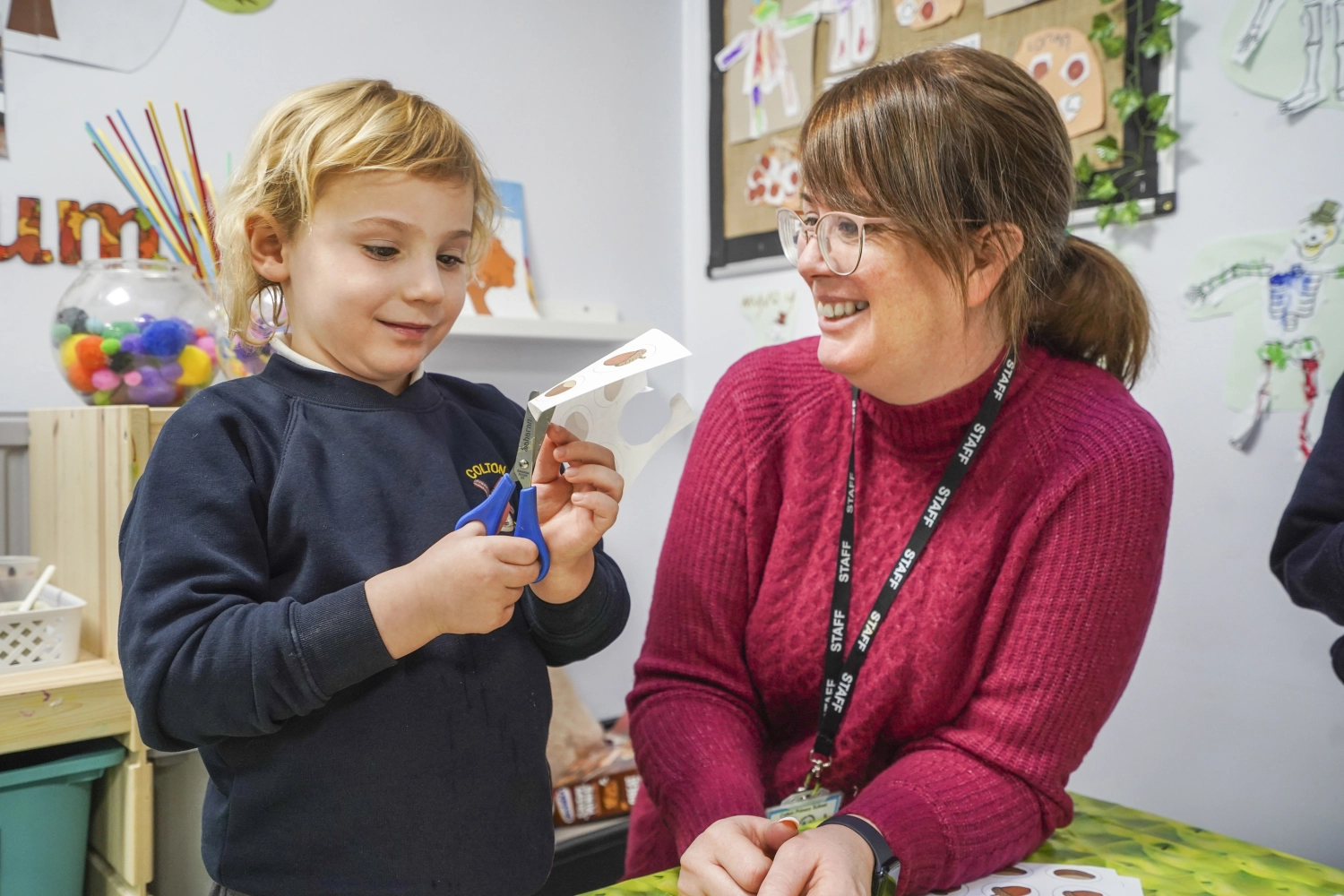
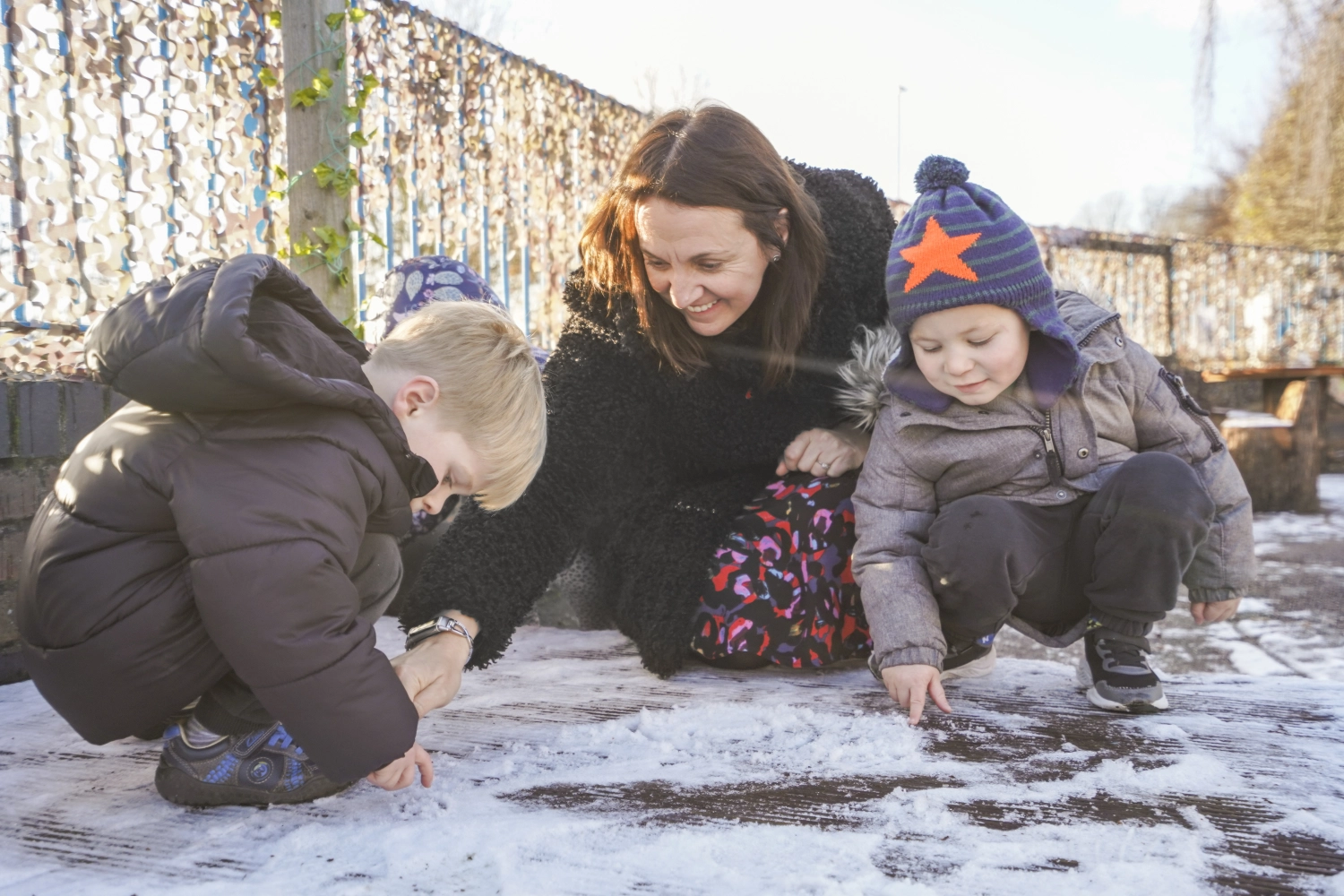
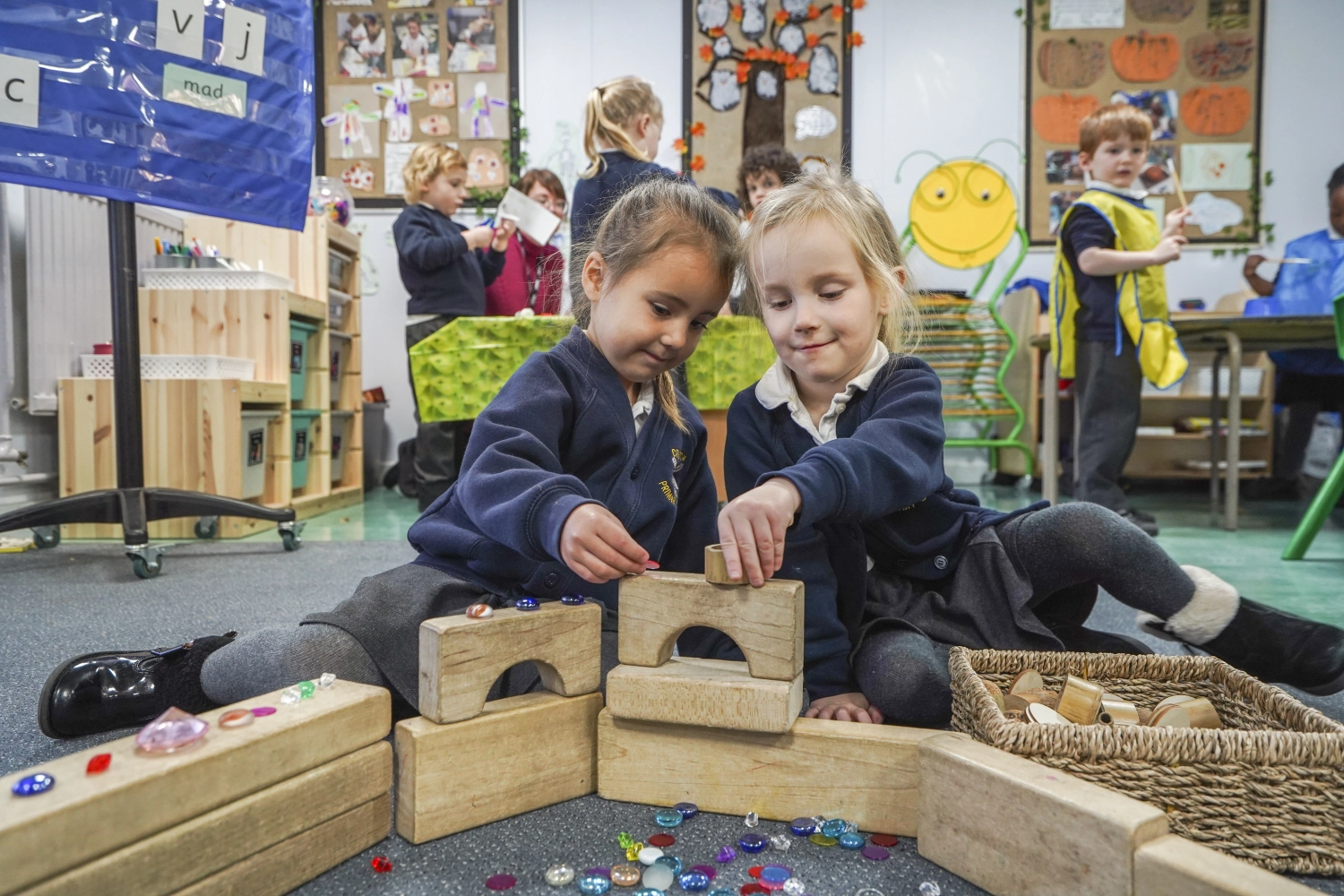
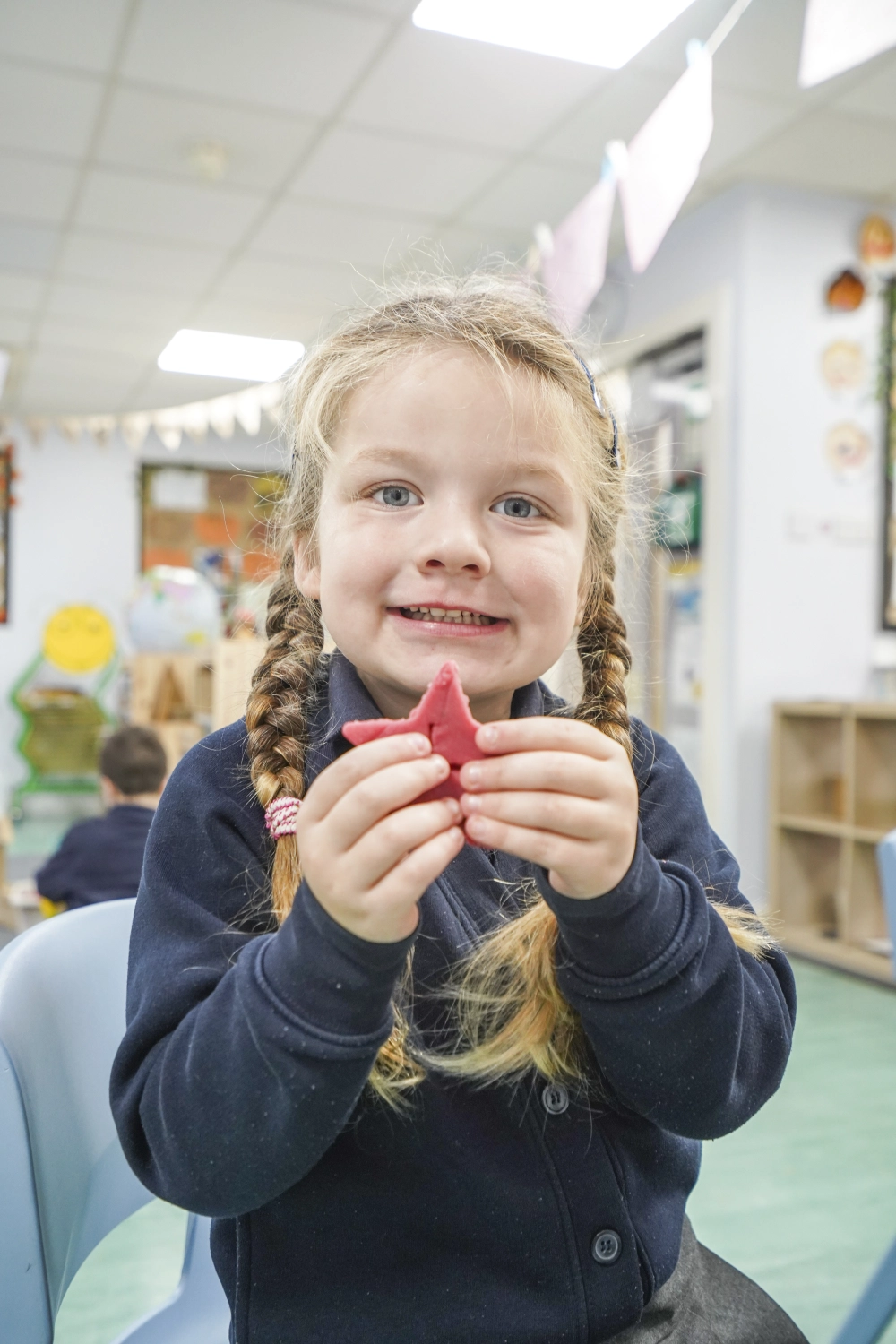
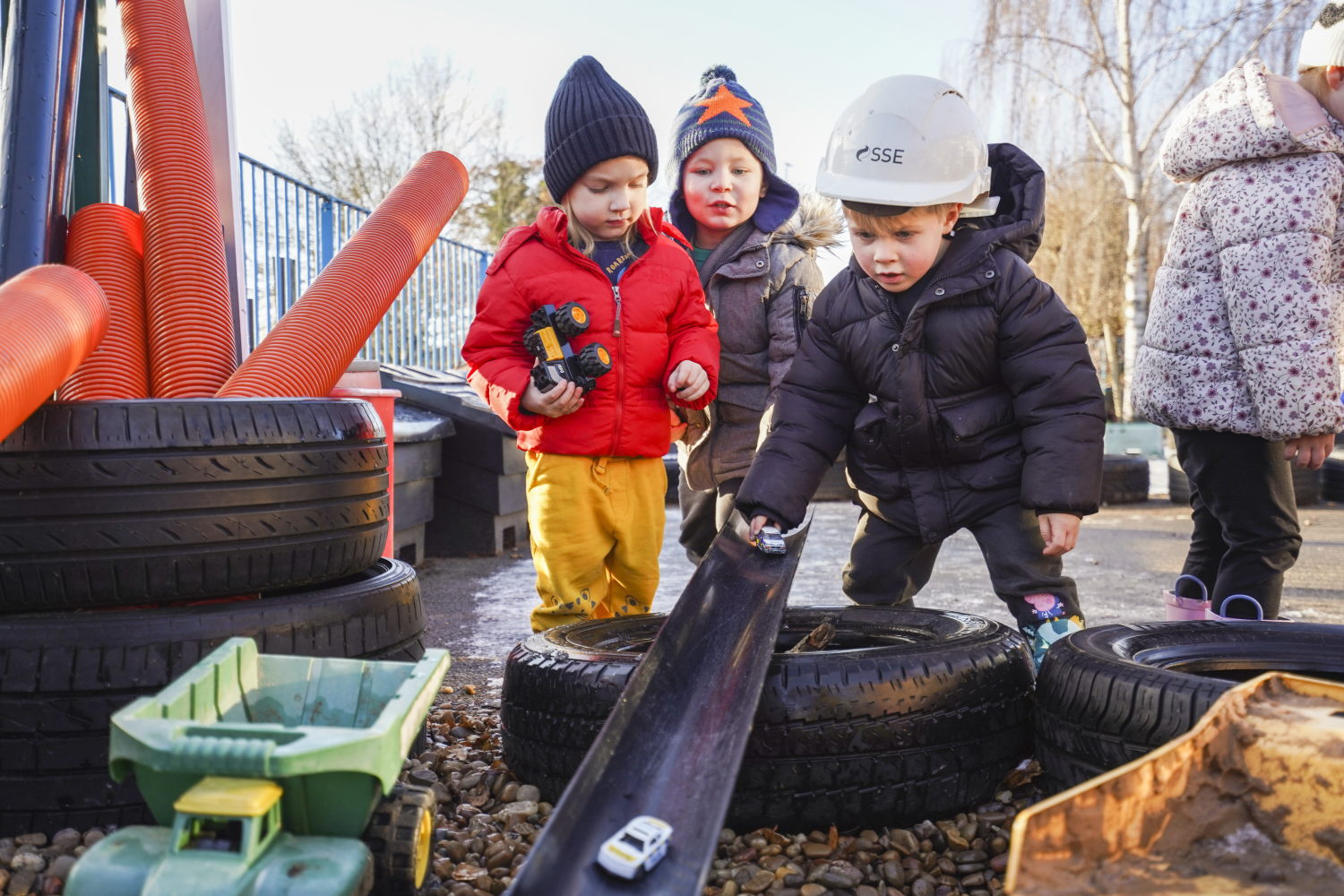
All areas are delivered through a balance of adult led and child-initiated activities. In each area there are Early Learning Goals (ELG's) that define the expectations for most children to reach by the end of the EYFS.
The EYFS classrooms are organised to allow children to explore and learn securely and safely. There are areas where the children can be active, be quiet and rest. The classrooms are set up in learning areas, where children are able to find and locate equipment and resources independently.
The EYFS classrooms have access to an enclosed outdoor area and also use the Woodland Area at the end of the playing field. This has a positive effect on the children’s development. Being outdoors offers opportunities for doing things in different ways and on different scales than when indoors. It offers the children to explore, use their senses and be physically active and exuberant. We plan activities and resources for the children to access outdoors that help the children to develop in all 7 areas of learning
Each area of learning and development is implemented through planned, purposeful play and through a mix of adult-led and child-initiated activity. We believe that play is essential for children’s development, building their confidence as they learn to explore, to think about problems, and relate to others. Children learn by leading their own play, and by taking part in play which is guided by adults.
Learning through Play
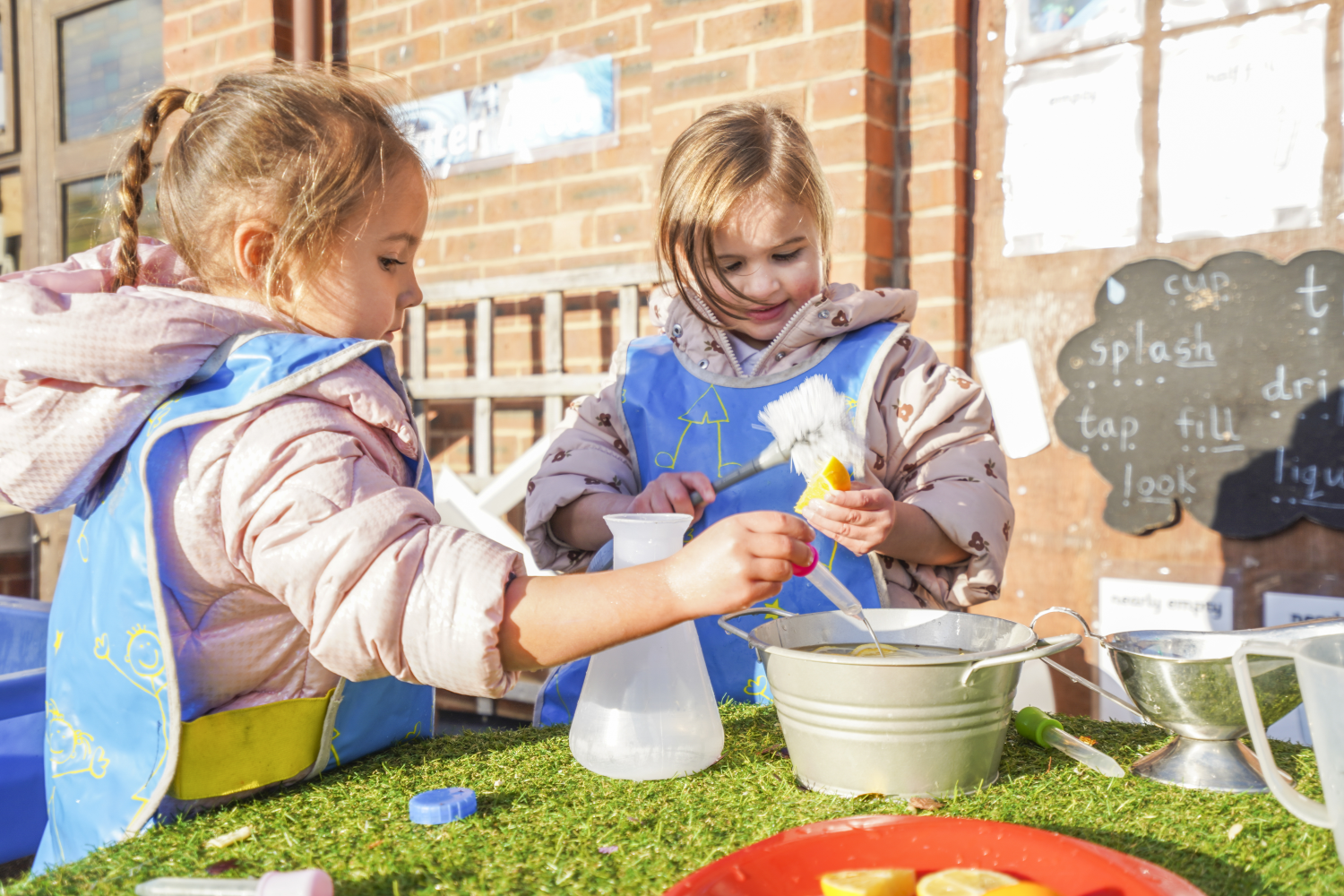
The main part of children’s learning will be through different play-based activities, some of which will always be available and some based on the topic.
As well as adult led activities, children will explore and experiment with materials and equipment to discover how the world works for themselves in child-initiated activities.
Teachers also provide activities based on children’s interest to ensure children are motivated and learn through their choice of play/activity.
Our teachers and professionals are experts who recognise young children learn best through play, especially when they are happy and confident. Our aim in the Early Years is to help the children to share, focus, explore and enjoy a wide range of first- hand experiences.
All these skills are developed from the start to help their intellectual and physical development, as well as provide a foundation for their future learning.
Working in partnership
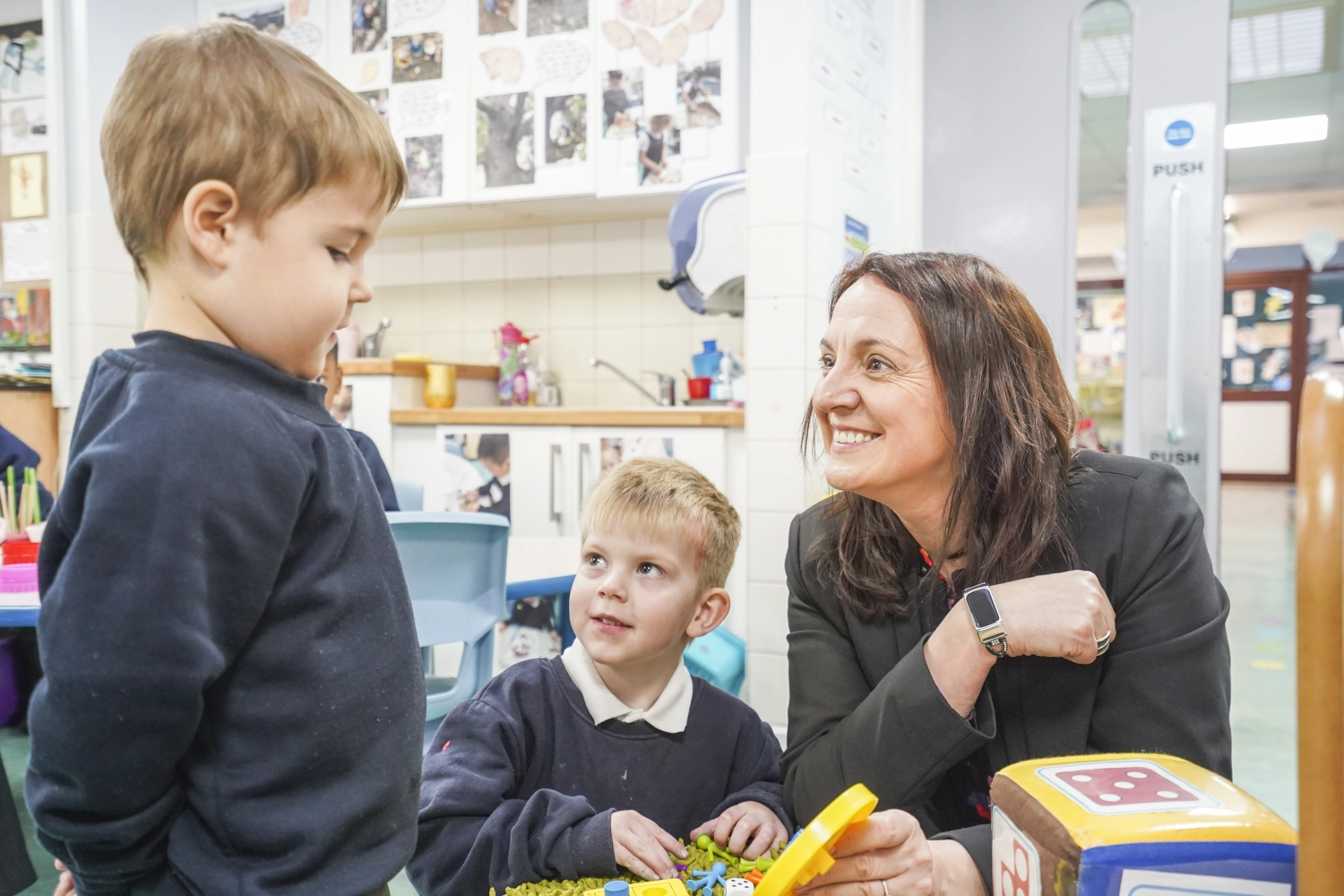
At Colton we understand the how vital working in close partnership with parents and carers is. From the start of your child’s journey with us we welcome you all to contribute to your child’s learning journey.
We use Tapestry as our online learning journal. Photographs, videos and notes of special moments are not only recorded but will be made available regularly and often immediately to you. We welcome parents to contribute to the journal with achievements and things to share from home.
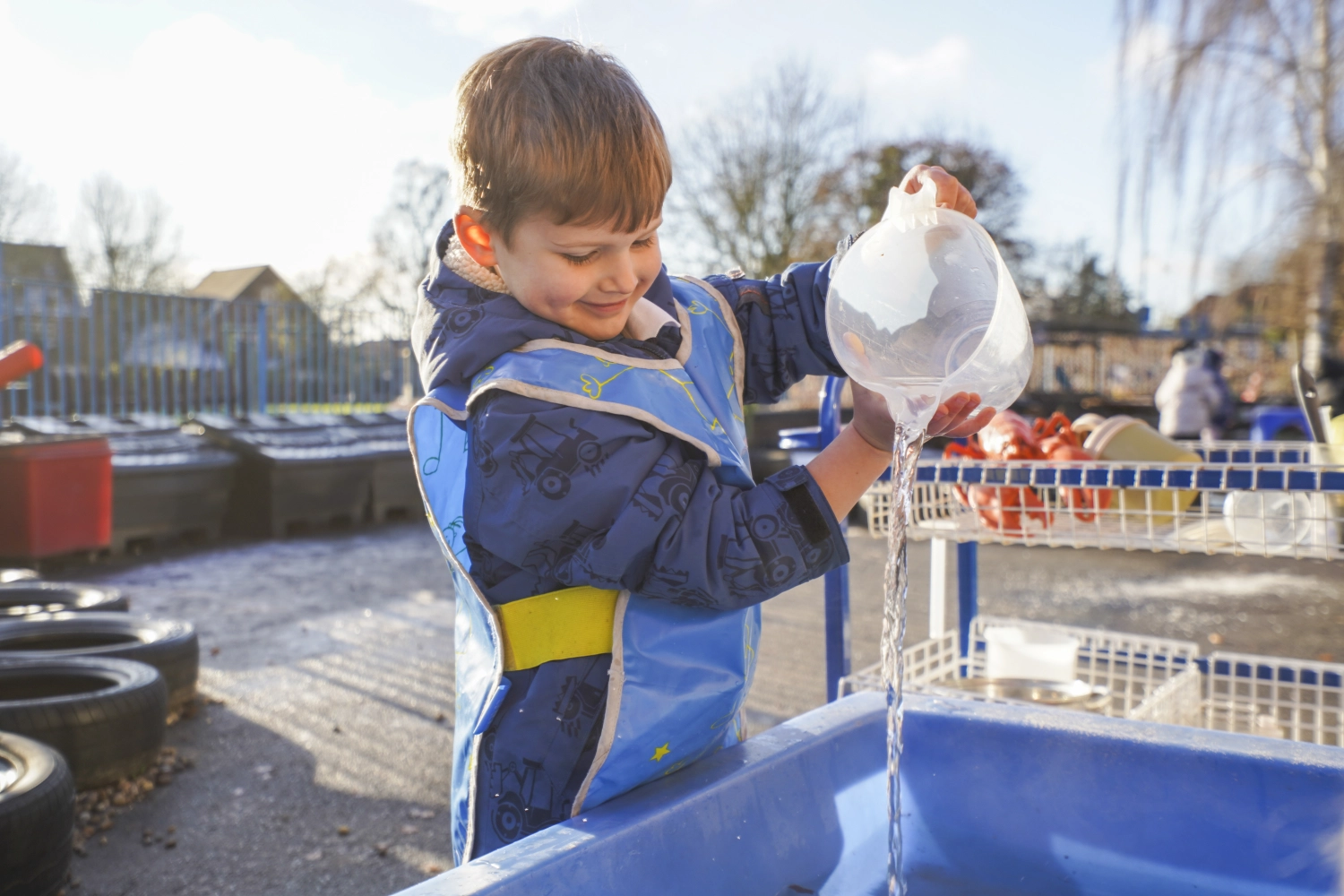
List of statutory policies and procedures for the EYFS
This checklist lists the policies and procedures that we must have according the EYFS statutory framework.
|
Statutory policy or procedure for the EYFS |
Where can it be found? |
|---|---|
|
Safeguarding policy and procedures |
|
|
Procedure for responding to illness |
|
|
Administering medicines policy |
|
|
Emergency evacuation procedure |
|
|
Procedure for checking the identity of visitors |
|
|
Procedures for a parent failing to collect a child and for missing children |
|
|
Procedure for dealing with concerns and complaints |
